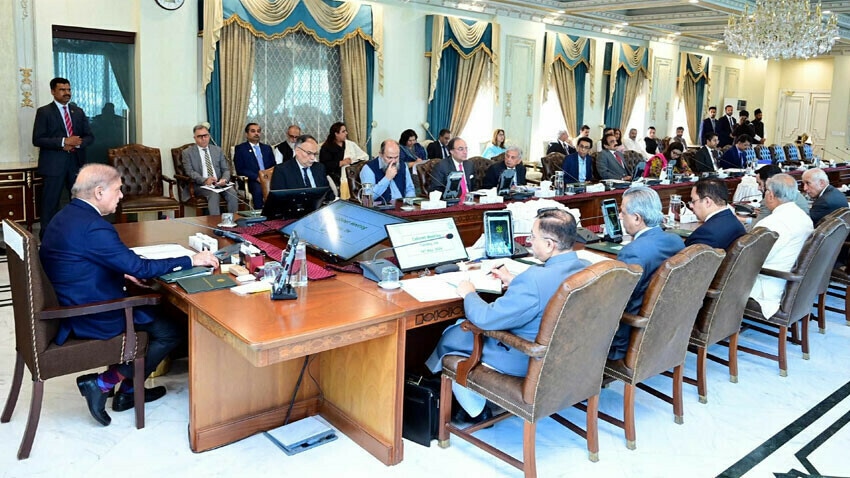Mohsin Siddiqui (Chief Reporter)
The federal Cabinet has given the green light to the Appellate Tribunal Inland Revenue (Appointments, Terms and Conditions of Service) Rules, 2024. These new regulations aim to establish a transparent and efficient process for appointing members to the Tribunal, ensuring the swift resolution of tax-related cases.
The Ministry of Law and Justice presented the summary of these rules with the Prime Minister’s permission, acting in his capacity as Chairman of the federal Cabinet.
The Cabinet was informed that the Prime Minister had formed a Legal Reforms Committee to enhance the efficiency, functionality, and transparency of the Income Tax Appellate Tribunal. Following the Committee’s recommendations, several amendments were introduced to Section 130 of the Income Tax Ordinance, 2001, through the Tax Laws (Amendment) Act, 2024 (V of 2024).
The Ministry of Law and Justice explained that under sub-section 2 of Section 130 of the amended Act, the Appellate Tribunal must consist of members appointed by the federal government. These appointments are to be made according to prescribed rules, which override any conflicting provisions in Section 237 of the Income Tax Ordinance or the Federal Public Service Commission Ordinance, 1977 (XLV of 1977), or any other prevailing law.
In line with the Tax Law (Amendment) Act, 2024, the ministry prepared the “Appellate Inland Revenue (Appointments, Terms and Conditions of Service) Rules, 2024.” These draft rules were developed in consultation with the Attorney General of Pakistan and the Chairman of the Federal Board of Revenue. Their primary goal is to establish a transparent process for appointing Tribunal members, ensuring the quick resolution of tax-related disputes.
The Cabinet emphasized that all Tribunal appointments must be merit-based and conducted through a competitive selection process managed by a reputable national institute or university. The process will be transparent, beginning with an initial screening of candidates. A Selection Committee, appointed with the Cabinet’s approval, will then assess the shortlisted candidates.
After a brief discussion, the Cabinet approved the Ministry of Law’s summary, signaling a significant step towards improving the efficiency and transparency of the Income Tax Appellate Tribunal.
The Ministry of Law also presented another summary regarding amendments to the Investment Ombudsman (Appointment, Terms and Conditions of Service) Rules, 2023. The Foreign Investment (Promotion and Protection) Act, 2022 (XXXV of 2022), aims to attract, encourage, and protect large-scale foreign investments in Pakistan, promoting sustainable economic growth.
Section 12 of this Act mandates the federal government to appoint an Investment Ombudsman for a three-year term, under prescribed terms and conditions. The Ombudsman must have at least fifteen years of experience in international trade, foreign investment, and related fields.
Upon appointment, the Investment Ombudsman is tasked with handling complaints from investors against the federal government, any federal entity, or provincial governments concerning violations of the Act or failure to implement protected benefits.
The Ministry of Law noted that the current Investment Ombudsman (Appointment, Terms and Conditions of Service) Rules, 2023, specify the qualifications for the role. To attract the most suitable candidates from a broader pool, the Ministry proposed amending rule 3(1)(e) to change the academic qualification requirements.
The Ministry prepared a draft Statutory Regulatory Order (SRO) outlining these amendments, which were proposed under Section 15 of the Act. After presenting the reasons for the changes, the Cabinet approved the proposal, marking another stride towards enhancing the framework for foreign investment in Pakistan.




